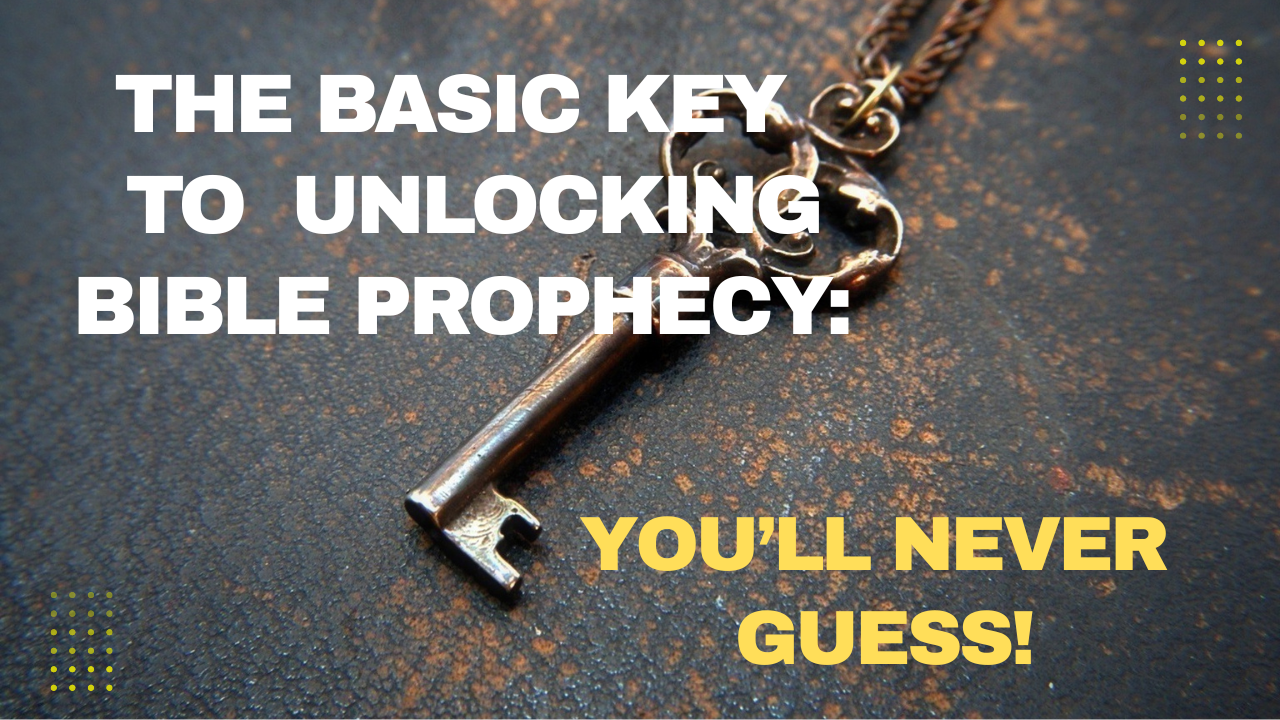God’s Mission, My Mission (Lesson 5) Excuses to Avoid Mission Part 5-6
What do you do when you know you need to confront an issue, but you avoid it because you feel uncomfortable about the outcome?
We are continuing our look at the love of God for us and his plan (his mission) to bridge the gap between us and him. His mission is to bring us back into a relationship with him. In bridging the gap between us and Him, He calls for us to become His disciples and members of his family. But it does not end with his call; a call without action from the one being called has no value.
In this series, using Jonah, a character in the Bible who ran away to avoid his mission, we look at the different excuses people use not to take action and what God expects us to do when He calls.
Review our past and present videos at SabbathSchoolDaily.com or visit my YouTube Channel, Sabbath School by Dr. Brenda Ware Davis
You also may obtain the study guide for this series at Sabbath.School or ssnet.org
Let Us Inviting God’s Presence:
Holy Father, help us cast aside our fears and give us the boldness we need to confront them. In Jesus’ Name, Amen.
God’s Mission, My Mission
(Lesson 5)
Excuses to Avoid Mission
Part 5 of 6
Our Excuses: Uncomfortable Confrontations
Jonah had many excuses for not answering God’s call to go to Nineveh. One major reason he refused was he feared and hated the Ninevites, and he was certain that if he warned them of their coming dome, they would repent, turn to God, and then God would spare their lives. Thus, he feared he would become a laughingstock, so rather than confront the issue of embarrassment, he refused to go.
Before you go any further to find out what was wrong with Jonah, read Jonah 4.
Notice what Jonah says to God in Jonah 4:2
“Ah, Lord, was not this what I said when I was still in my country? Therefore I fled previously to Tarshish; for I know that You are a gracious and merciful God, slow to anger and abundant in lovingkindness, One who relents from doing harm” (Jonah 4:2, NKJV).
Jonah hated the Ninevites so badly that he felt that he would rather die than be embarrassed when the word got out that God didn’t destroy Nineveh after he had warned them that God was going to destroy it.
You see, Jonah didn’t want the bad reputation that he had failed as a prophet. What is a prophet? A special messenger from God who proclaims warnings or gives instructions.
But Jonah hated the people of Nineveh. It was his hope that they would be the next Sodom and Gomorrah. He hated them so much that he wanted God to destroy them.
Have you ever or do you know someone who feels a certain way about a person or group of people?
When God did not destroy Nineveh, Jonah was embarrassed and angry. As a matter of fact, he felt so ashamed that he wanted to die.
Interestingly enough, lovingly and patiently, for the second time, rather than a long discourse, sermon, or speech, God gives Jonah a learning experience. This experience changes how Jonah views life.
The point is that our worldview, the way we see things, and how we view life don’t necessarily change because we hear something new or different. Nor are they changed simply because someone demands it.
Our worldview changes when we have a powerful life experience. How we understand these powerful experiences is what causes us to change how we think about life and the things around us.
So, God gives Jonah a new experience to help him understand that his ideas were distorted. His views about life were mixed up and all wrong.
What a powerful reality to take in!
God miraculously causes a plant to grow large enough in one day to give Jonah shade to protect him from the hot sun.
On the one hand, Jonah is thankful for the plant; on the other hand, Jonah is not thankful to God for giving the plant to him.
Jonah doesn’t see the plant as a miracle and as a gift from God. Instead, Jonah has the attitude that he earned the right to this plant because of his good work and behavior.
So, when the plant dies, Jonah gets angry. He starts to doubt his worth and wants to die. In other words, he became suicidal.
But God did not leave him in this state. God talks to Jonah in a loving way. He tries to help Jonah understand that he is being very silly to care more about a plant than the thousands of men, women, and children in Nineveh and all their animals.
The funny thing is the story of Jonah doesn’t settle with Jonah’s regret or sorrow for his attitude about the Ninevites. Rather, the story of Jonah is an unfinished story that turns to us.
How will you respond to God’s concern for the wicked, for the bullies, for those that are difficult to deal with?
Will you confront your fears or run away? How will you answer God’s call? For more, continue to the next segment of this video: Part 6 Here Am I, Send Me.
God’s Mission, My Mission
(Lesson 5)
Excuses to Avoid Mission
Part 6 of 6
Here Am I, Send Me
Jonah’s experience in Jonah 2 when he was in the belly of the fish is more than amazing! It is a powerful display of God’s love and mercy. If you have not already read it, stop here and read Jonah 2 and 3.
Jonah refused at times to cooperate with God. But God saved the Ninevites despite Jonah’s reluctance. This story helps us understand our part in God’s work. We are only His channels. God does not expect us to convict and convert the minds of people. God changes hearts, not us humans.
Another thing we learn from Jonah is that God wants only those with willing and humble hearts to do his work.
Isaiah, in Isaiah 6:1–8, is an example of one with a willing and humble heart. It says:
1 In the year that King Uzziah died, I saw the Lord sitting on a throne, high and lifted up, and the train of His robe filled the temple.
2 Above it stood seraphim; each one had six wings: with two he covered his face, with two he covered his feet, and with two he flew.
3 And one cried to another and said: “Holy, holy, holy is the Lord of hosts; The whole earth is full of His glory!”
4 And the posts of the door were shaken by the voice of him who cried out, and the house was filled with smoke.
5 So I said: “Woe is me, for I am undone! Because I am a man of unclean lips, And I dwell in the midst of a people of unclean lips; For my eyes have seen the King, The Lord of hosts.”
6 Then one of the seraphim flew to me, having in his hand a live coal which he had taken with the tongs from the altar.
7 And he touched my mouth with it, and said: “Behold, this has touched your lips; Your iniquity is taken away, And your sin purged.”
8 Also I heard the voice of the Lord, saying: “Whom shall I send, And who will go for Us?” Then I said, “Here am I! Send me.” (Isaiah 6:1-8)
God is looking for people willing to help carry out his mission to bring lost humanity back into a relationship with him.
He wants us to answer His call by submitting to His leadership, listening to His voice, and then choosing to obey whatever He tells us.
Another important thing about the story of Jonah is it shows God’s love for people who don’t know Him or have not learned of His love.
This is shown in God’s pity for Nineveh. He has this same pity today for the millions of people living in crowded cities around the world. In these noisy cities, buildings stand where trees and flowers used to grow.
The buildings and busy lifestyle make it hard for people to be still and listen. But what did God say about Nineveh in Jonah 4:11
11 And should I not pity Nineveh, that great city, in which are more than one hundred and twenty thousand persons who cannot discern between their right hand and their left—and much livestock?” (Jonah 4:11).
God is calling for messengers today who are willing to take His message of hope to the people living in these crowded cities.
What was Isaiah’s response in Isaiah 6:8 when he heard Someone ask, “Who will go?” That “Someone” was God. What will your answer be?
Here is your challenge!
Challenge #1: Make a list of ten people that you feel uncomfortable confronting or dealing with. Pray daily for each of these ten individuals for the rest of the year. Also, pray for deeper, loving, and more trusting friendships with them. As your relationship with them grows, pay close attention to their needs, hurts, and pain. Pray that God will meet their specific needs.
For those up to a greater challenge:
Challenge #2: Choose two cities: one near you and one in another part of the world. Start praying for the people who live and work in both cities. Ask God to send a strong presence to those cities so they can receive truth as it is in the Bible about the love of Jesus and his soon coming.
Finally, ask God to help you be satisfied with the outcome.
————————————————
Share your results in the comment section below.
Thank you for watching this video. To be notified when my next video comes out, Subscribe to my YouTube Channel, Sabbath School, by Dr. Brenda Ware Davis.
If you enjoyed this video and you want to use it to help in fulfilling God’s mission, click Like…..then…..Share. Thank you for Liking, Sharing, and Subscribing.
Hebron Seventh-day Adventist Church
7902 Wheatly Street
Houston, TX 77088
Watch Past and Present Lessons at SabbathSchoolDaily.com














Post Comment